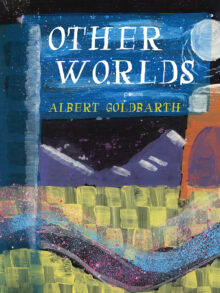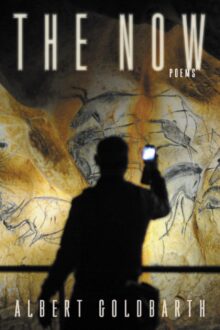
Albert Goldbarth
Albert Goldbarth has been publishing books for nearly fifty years. He won the National Book Critics Circle Award for Saving Lives and for Heaven and Earth: A Cosmology, the only poet to receive the honor two times. Goldbarth’s other honors include fellowships from the National Endowment for the Arts and the Guggenheim Foundation, and the Milt Kessler Award. His work has appeared in numerous anthologies, including The Penguin Anthology of 20th Century American Poetry and multiple appearances in The Best American Poetry series and The Pushcart Prize. He lives in Wichita, Kansas.
Other Worlds
Other Worlds is true to its title, from a look at our everyday joys and griefs as interpreted by the Mars of classic science fiction and the crazy domain of quantum physics; to studies of the many conflicting realities that America uneasily accommodates in a time of pandemic and protests; to elegiac poems informed by the realms of memory, ghosts, and imagined afterlives. From a poem of one line to a sequence of twelve sections, from comic hijinks to despair, and from private revelation to public declaiming, this is a bravura performance by the only poet to have twice received the National Book Critics Circle Award and who, at age seventy-three, is writing at the height of his powers.
Excerpt from “Last Song”
I choose the other way,
with heels dug in.
I vote for screaming
yearningly. For heading into the afterlife
against the grain of this one. For a slowing down
to the pace of a person too absorbed
in the glory and grit
to work up any hurry for departing it.
The Now
Poems
The Now describes the unique, and sometimes baffling, moment in which we live, a time defined by an immediate future of online wonderments, fake news, multiple personalities, data economy, gene modification, and the rest of the exciting-and-yet-ominous “technology culture,” even as it’s a time when the urge to memorialize the past—to sing elegiacally—seems more important than ever.
Between poems that consider the disappearance of language in an age of digital/binary communication, and poems that mourn the disappearance of fellow poets and artists, this collection attempts to stand on a nano-second that looks both backward and forward in time: the ever-shifting “now.”


